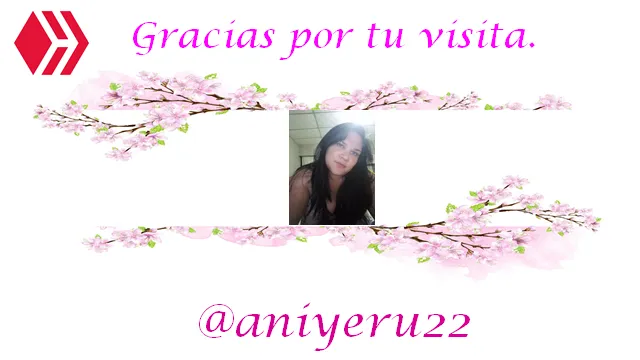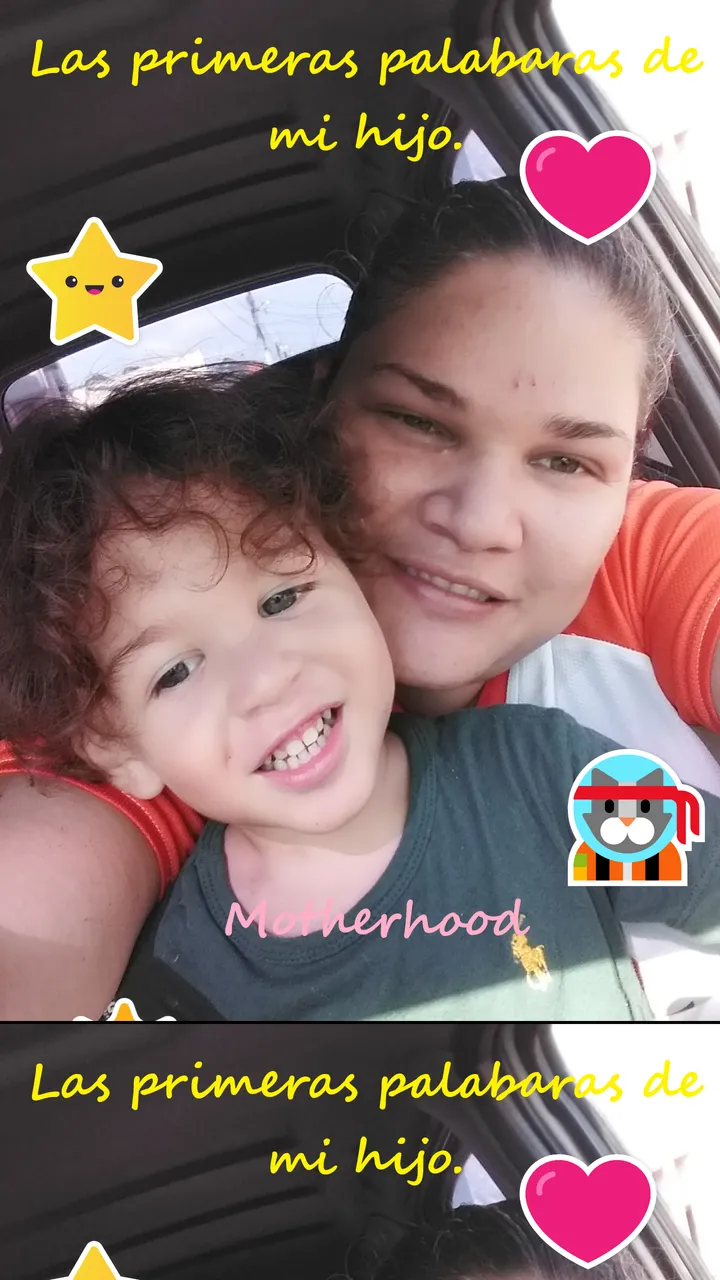
Foto de mías álbum fotográfico by @aniyeru22, modificada por mi con Paint 3D en mi pc.
| Español | English |
|---|---|
| Hola amigas de Hive Motherhood, hoy quiero hablarle de las primeras palabras que dijo mi hijo y que nosotros todavía decimos. | Hello friends from Hive Motherhood, today I want to tell you about the first words my son said and that we still say. |
| Mi hijo ha tardado en hablar bien, antes del año aprendió a decir papá y mamá, después de un tiempo tal vez como al año y medio dijo algunas de las palabras de las que hablare. | My son has been slow to speak well, before the year he learned to say dad and mom, after a time maybe like a year and a half he said some of the words that I will talk about. |
| • Ella (para llamar a mi mamá que le decía que la llamara Ela), Ella porque es fuerte como un roble. | • Ella (to call my mother who told her to call her Ela), Ella because she is strong as an oak tree. |
| • Después dijo tiyo (para llamar a su tío), así fue poco a poco agregando palabras raras hasta que fuimos entendiendo y ayudándole con eso. | • Then he said tiyo (to call his uncle), so he gradually added strange words until we understood and helped him with that. |
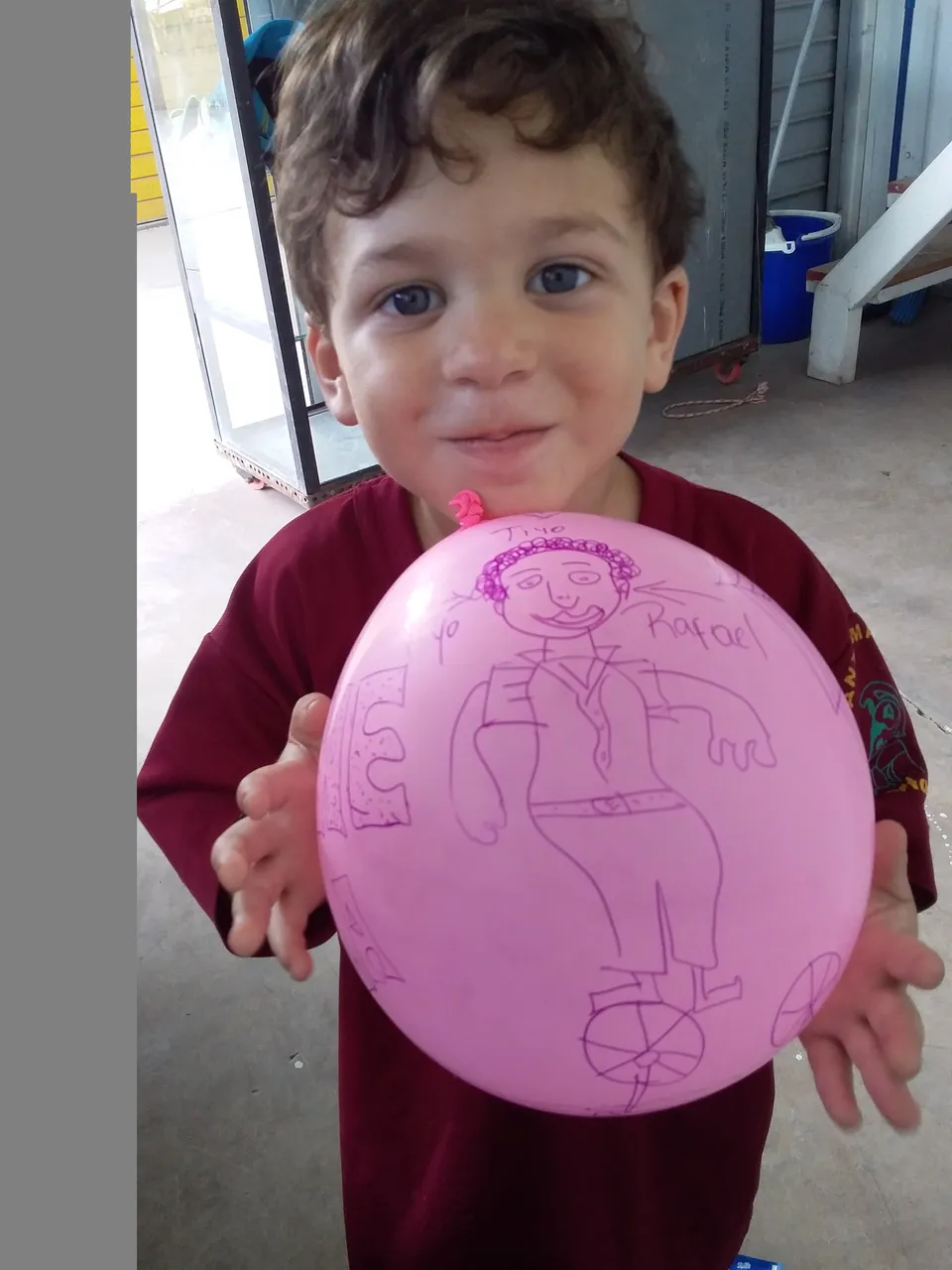 Globo donde me toco hacerle a su tiyo tenia 2 años.
Globo donde me toco hacerle a su tiyo tenia 2 años.
|
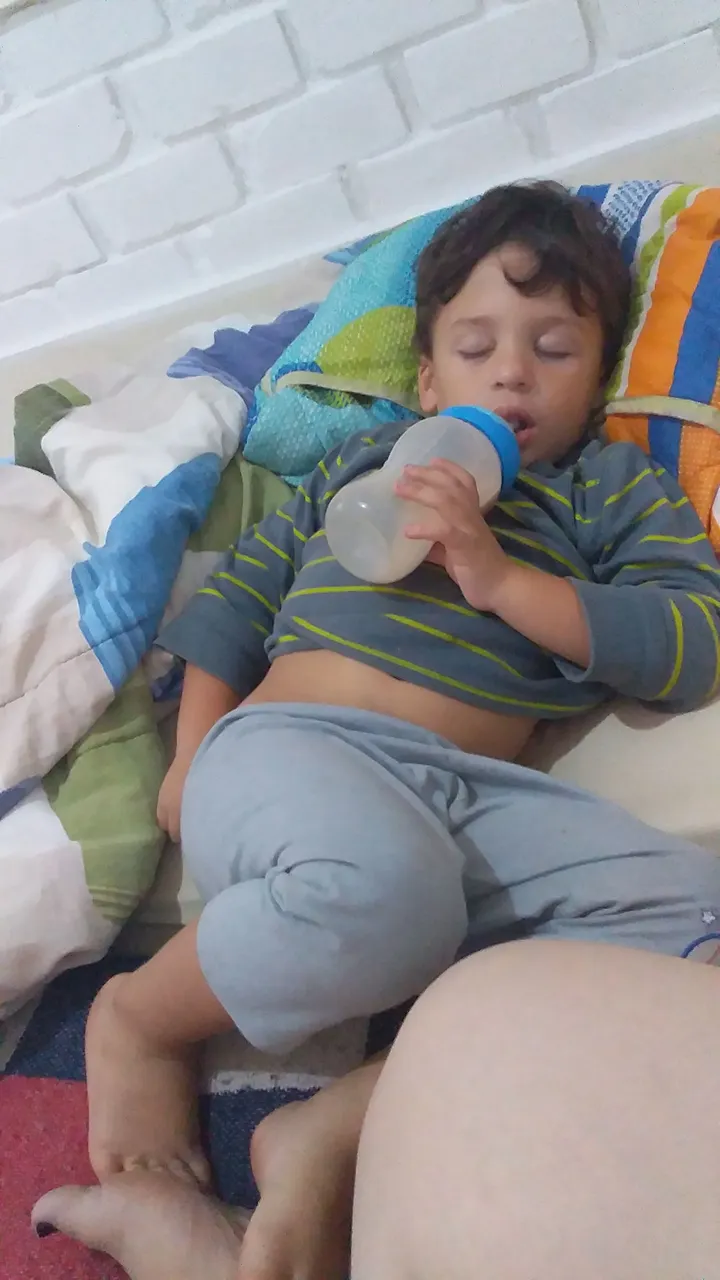
Tomando su tetero de toddy (cake toy).

| Español | English |
|---|---|
| • Cake toy para que le hiciera tetero de toddy. | • Cake toy to make him a toddy bottle. |
| • Pichacola para referirse a la Pepsi. | • Pichacola to refer to Pepsi. |
| • Una caquellita para referirse a una galletica. | • A caquellita to refer to a cookie. |
| • Aprendió a decir one para decir que su nombre es José. | • Learned to say one to say that his name is José. |
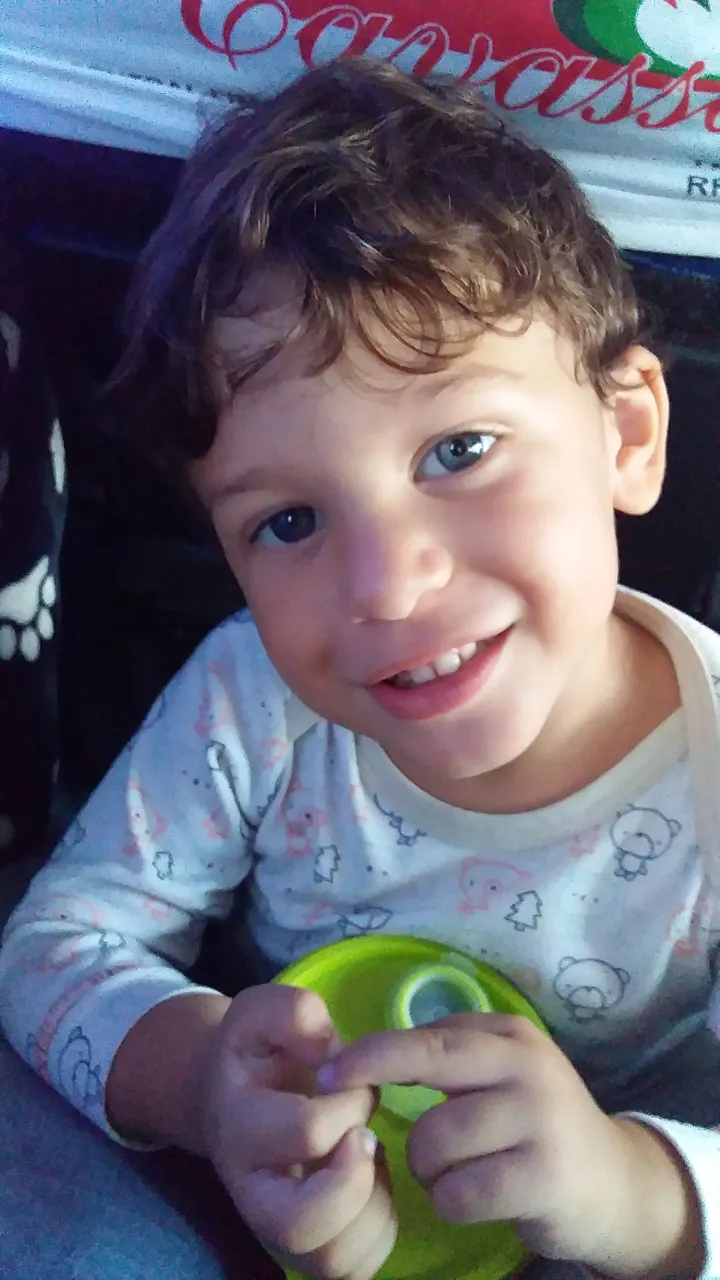 Mi hijo One (José).
Mi hijo One (José).
|
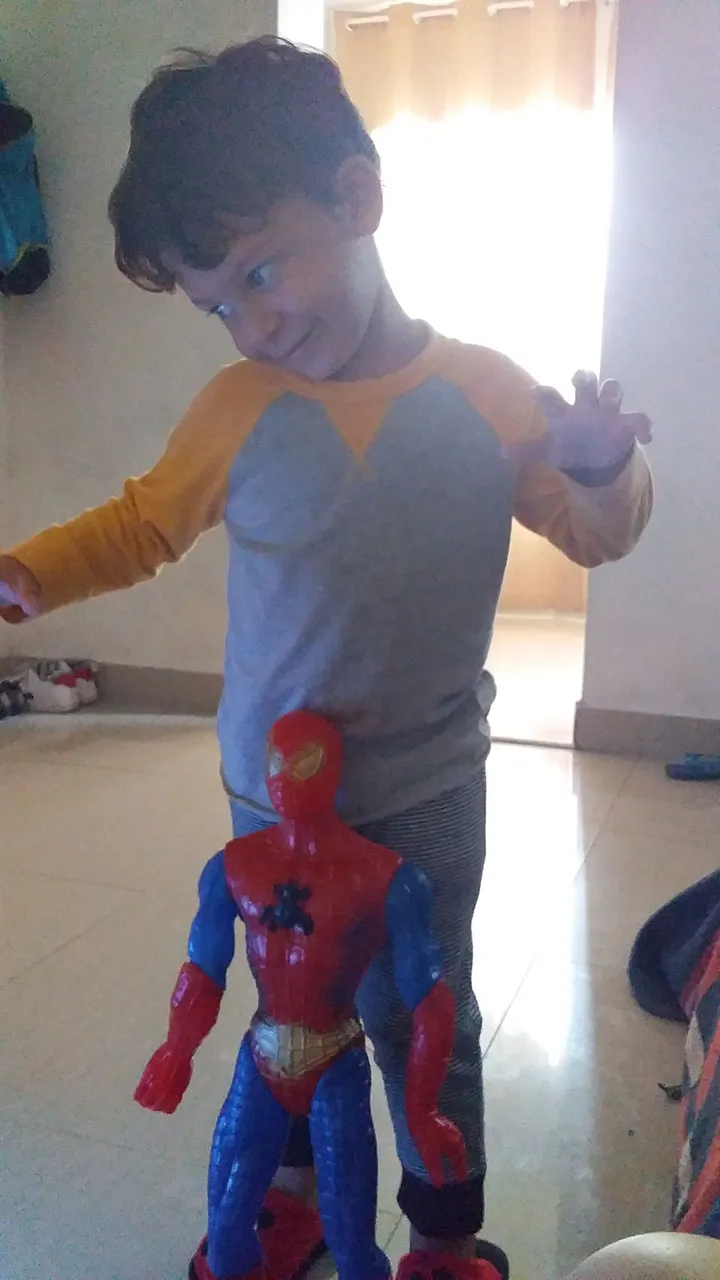 Mi hijo con el hombre lala (Araña) que le regalo su papá.
Mi hijo con el hombre lala (Araña) que le regalo su papá.

| Español | English |
|---|---|
| • Cuando fuimos al pero aprendió a decir choles para referirse a los soles. | • When we went to but he learned to say choles to refer to the suns. |
| • Papas pipas para las papas fritas. | • Potato pipes for French fries. |
| • Opo para llamar a un niño que le dicen pocho. | • Opo to call a child who is called pocho. |
| • Cuando cumplió 3 comenzó a decir más cosas unas bien y otras no tanto, ahora con 5 habla un poco mejor aunque todavía no pronuncia la R por lo que a su perro en lugar de nombrarlo perrito lo llama pediqui (yo pensaba que era para decirle perico o algo así pero no, es por perrito), muchas de estas palabras ya no las usamos pero para mi mamá y para mi es chévere recordarlas aunque él ya las diga bien. | When he turned 3 he began to say more things, some well and others not so much, now with 5 he speaks a little better although he still does not pronounce the R so instead of naming his dog puppy he calls it pediqui (I thought it was to say parrot or something like that but no, it's for a dog), many of these words we no longer use but for my mother and for me it is cool to remember them even if he already says them well. |
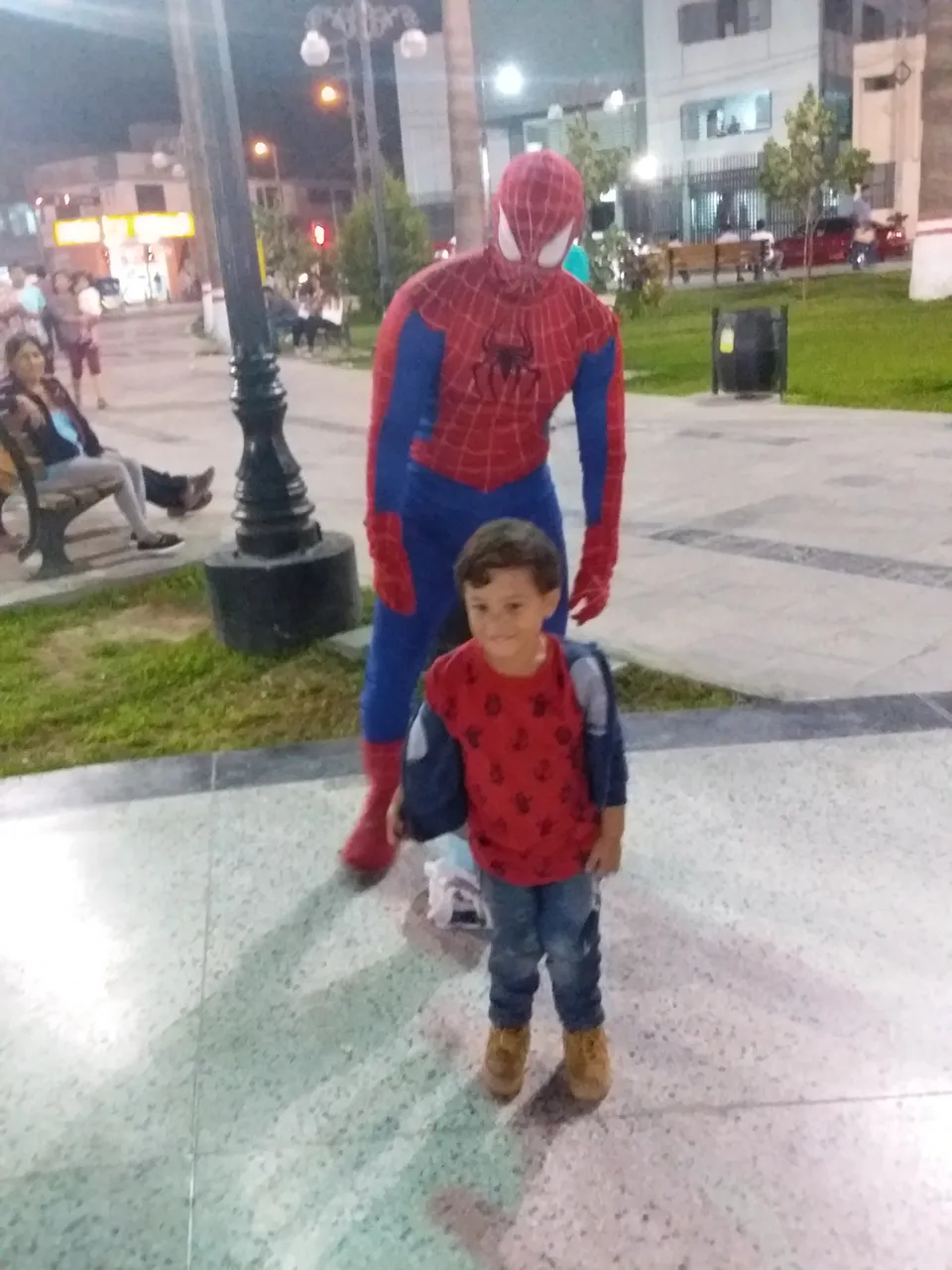
Mi hijo con el hombre lala (Araña).
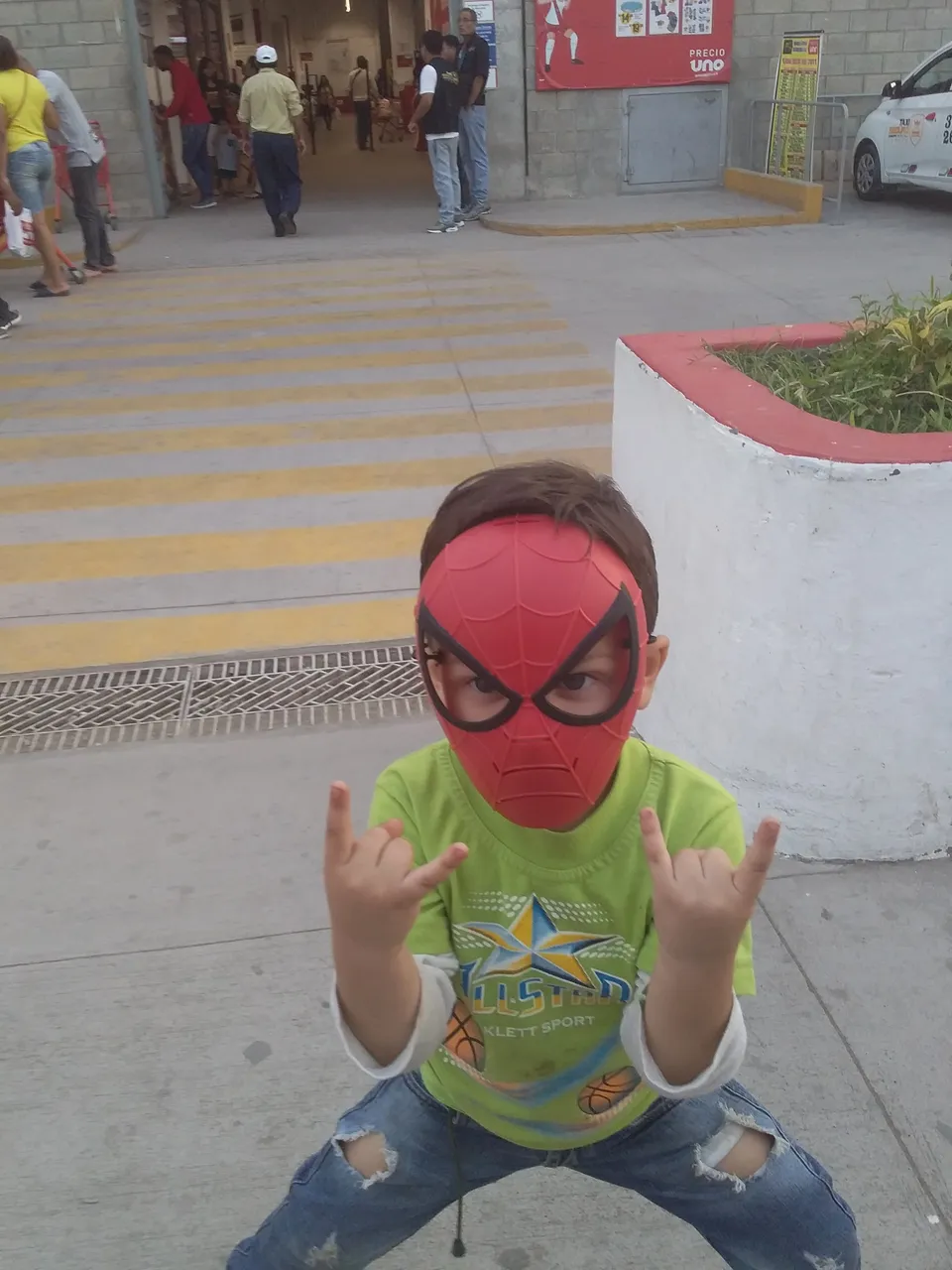
Mi hijo con su mascara del hombre lala (Araña).
| Español | English |
|---|---|
| La más usada es pichacola, siempre lo mandamos a buscarlas, también lo llamamos one y bueno su perrito que se llama dediqui ah y no puedo olvidar que su gato se llama amadillo porque es amarillo. | The most used is pichacola, we always send him to look for them, we also call him one and well his dog called dediqui ah and I can't forget that his cat is called amadillo because he is yellow. |
| Content from cell 1 | Content from cell 2 |
| Todos los días tratamos de que mejore sus palabras para que lo entiendan bien, lo más difícil es la R, pero seguimos trabajando en eso. | Every day we try to improve his words so that they understand him well, the most difficult thing is the R, but we continue working on that |

| Español | English |
|---|---|
| Gracias por leerme... | Thanks for reading me... |
| Un día a la vez... | One day at a time... |

